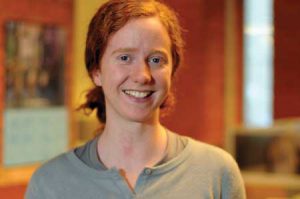
By Andrea Miller-Nesbitt
At the age of 15, I took one of my first jobs as a camp counselor at a camp for kids with disabilities and I’ve been passionate about working with people with disabilities every since. After moving to Montreal several years later, the first logical place for me to look for work was with an organization devoted to the population I love working with so much. This is how I came across Autisme et troubles envahissants du developpement Montreal (ATEDM) – a Centraide-funded organization dedicated to supporting children with autism and pervasive developmental disorder (PDD) and their families. I didn’t know anything about ATEDM at the time, but have since come to truly appreciate the amazing work they do.
ATEDM began as an initiative of a group of dedicated parents who wanted to create a network of support for themselves and others in their situation. Diagnoses of autism and PDD range in severity but have profound effects on people’s communication and socialization skills as well as their sensory perception. ATEDM works on a variety of projects such as support groups, health services, work placements, respite work, etc.
My involvement with ATEDM was as a counselor at one of their summer camps. Summer camps are important for kids from all walks of life who look forward to a taking break from their parents, reconnecting with friends and participating in fun activities such as sports and crafts and so on.
Camps for kids with disabilities are especially important for the campers and their families as they give campers a chance to try new things, forge new relationships and participate in ‘regular’ kid activities while providing much needed respite for their families. The day-to-day lives of the kids who attend these camps are often full of medical appointments and therapies – going to camp gives them a chance to relax and play.
Our days at camp were highly structured (one common feature among people on the autism spectrum is the need for routine), but we always found creative ways to include activities that would push the kids to try new things. For example, one day we went to La Ronde. It was amazing to see campers who would regularly do a single activity for hours at a time, laughing and pulling at my hand as we ran to the next roller coaster. Even though many of the campers could not verbalize how they felt about camp, it was evident in their faces and behaviour how much being there meant to them.
One particularly special memory that I have occurred in the last week of camp, when the camper I had been working with over the course of the month held my face gently and looked directly in my eyes for several seconds. Having this very simple but positive acknowledgement was very meaningful, especially because this particular camper did not easily connect with others.
Of course life at camp wasn’t always fun and games. People who have trouble expressing how they feel or what they need become frustrated, and for some of the campers, the only way they knew how to express their frustration was by physically lashing out. It was not uncommon to see campers self-injure. Dealing with this was often scary and frustrating, but ATEDM provided everyone with training and support. I learned something new every day regarding de-escalating stressful situations from those with more experience than me. It was truly inspiring to see the ways the counselors were able to connect with the campers, helping them through their frustration.
Working with people with autism through ATEDM really helped me recognize that my perception of the world around me was only one very narrow way of seeing things. It made me slow down and consider how others around me might differently perceive simple, everyday activities – such as taking the bus. It helped me consider my actions and how they may affect others and I am grateful for that.
Our community needs organizations like ATEDM to provide support for people with autism and PDD as well as their families. Without the types of programs ATEDM offers many of these kids would be institutionalized. Luckily, ATEDM is one of the 360 organizations that receives regular funding from Centraide. Without this support programs like ATEDM’s summer camps would not be possible.
Andrea Miller-Nesbitt is a Liaison Librarian
To learn more about ATEDM, visit: www.autisme-montreal.com/home.php?page=54.198
To learn more about the McGill Centraide campaign and how to donate, visit: www.mcgill.ca/centraide/
